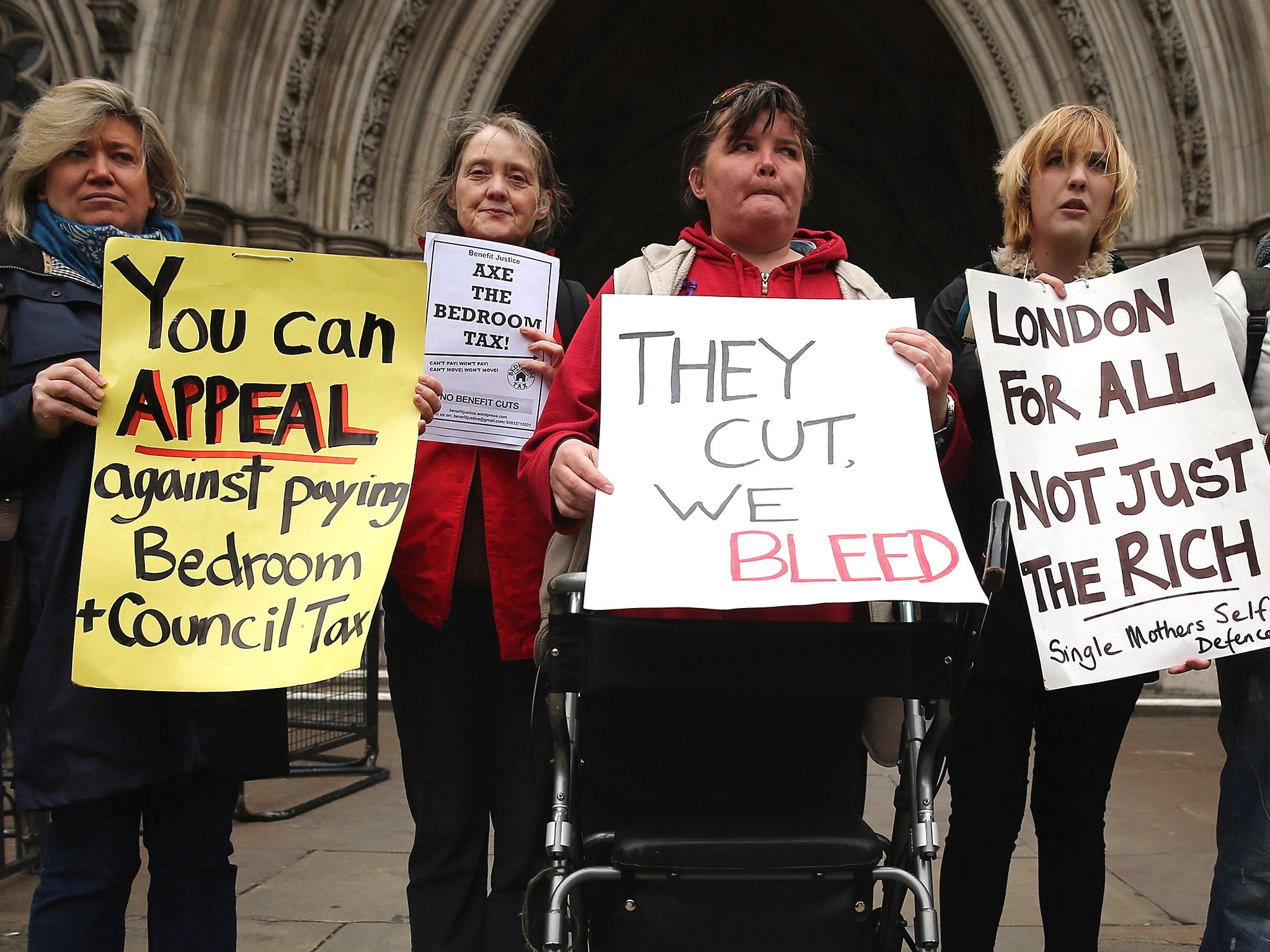The bedroom tax on bereavement: Grieving families to face spare-room benefit cut within three months

Families will be hit by the bedroom tax if a room remains unoccupied for just three months after the death of a family member, bereavement charities have warned.
There have already been several cases of families in social housing told that rooms left “spare” after the death of a child or other family member will become subject to the controversial spare room subsidy.
Currently households are given 52 weeks before they are reassessed, to allow them to decide whether to move or to re-occupy the room before they incur cuts to their housing benefit.
But under the Government’s flagship Universal Credit scheme, which will see housing benefit rolled in with up to five other benefits in one monthly payment, the stay of grace is to be cut to just three months, the National Bereavement Alliance (NBA) said.
The group said there was an urgent need for a review of the financial impact that recent changes to welfare have on people who have been bereaved, warning that the Government risked adding to the “distress” of grieving families.
“When someone has gone through a bereavement, the last thing they want to think about is practicalities,” said Joe Levenson, spokesman for the National Council for Palliative Care, a leading NBA charity. “They don’t want to be worrying about financial problems or uncertainties about their living arrangements. It really makes a distressing situation even more upsetting and hard to deal with. We’re concerned that changes to the benefit system will put people at risk of not being able to stay in their homes after a bereavement.”
The warning comes in a new report, Life After Death, which also calls for the creation of a ministerial post for bereavement, with responsibility for protecting the interests of grieving people.
Along with a review of the impact of welfare reforms, the group also urged the Government to consider introducing a statutory entitlement to bereavement leave, warning that grieving people across Britain are being “failed” by a lack of support in the workplace.
A survey of more than 4,000 people found one in three who were bereaved in the last five years did not feel their employer treated them with compassion.
Lucy Herd, who lost her son Jack three years ago said that her former partner’s employer’s decision to allow him just three days’ leave had been “inhumane”.
“It’s completely unrealistic to expect people who have lost someone close to them to immediately go back to work and carry on as normal,” she said.
A spokesperson for the Department of Work and Pensions said that, overall, grieving families would receive more support after their welfare reforms, with an extra £110m spent on bereavement benefits.
“Currently some benefits can cease or reduce immediately with a death,” the spokesperson said. “But Universal Credit will see payments continue to provide support and the Bereavement Support Payment will see parents receive a £5,000 lump sum and monthly instalments of £400 for a year.”
Case study: Dealing with grief
Lucy Herd, 38, an IT consultant from Berkshire, lost her son Jack in 2010 after he drowned in a pond just before his second birthday. She founded a charity, Jack’s Rainbow, to support bereaved families.
"The past three years have been a long, hard journey. When Jack died, my partner and other members of the family all had to return to work after just three days.
"You have up to 12 months off to celebrate and adjust to the birth of a child, and to be told that you can have only three days off after the death of a child is inhumane really.
"It’s not until you’ve been there that you know what you might not be entitled to – how many of us pick up our work contract and check how much bereavement leave you get? You don’t expect it to happen to you.
"People could take sick leave, but that goes against your record, and I have heard of bereaved people losing their jobs for taking too much sick leave.
"Everybody deals with grief differently; some people might find going back to work is the best thing for them.
"I always said I wanted to make something positive out of Jack’s short life. Death and grief are still very much taboo subjects. For me, talking about it is a great healing process."
Join our commenting forum
Join thought-provoking conversations, follow other Independent readers and see their replies
Comments